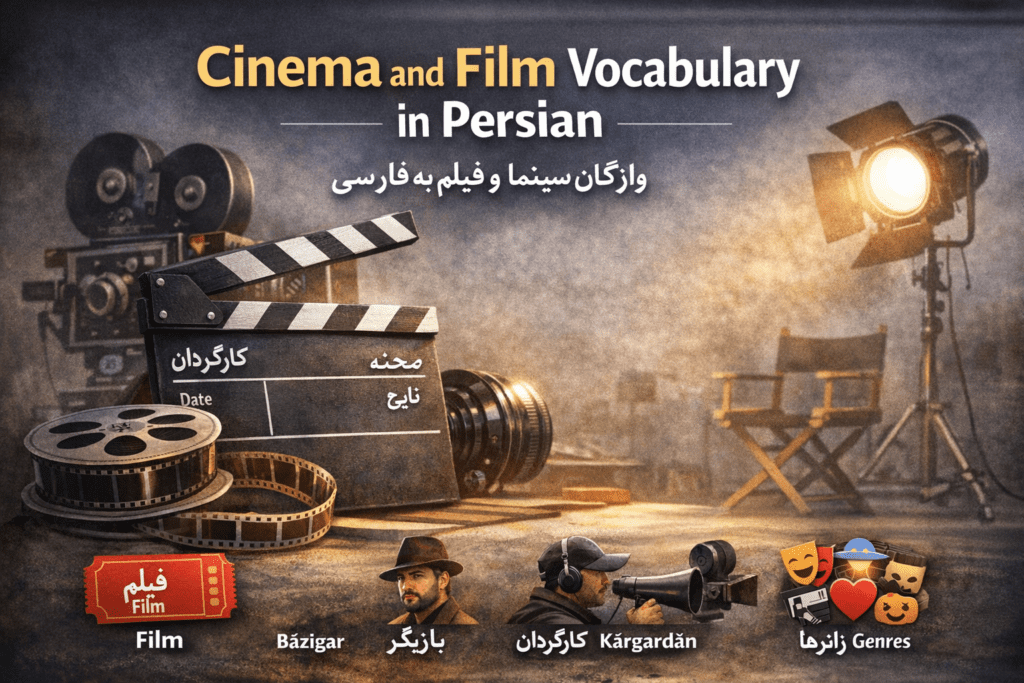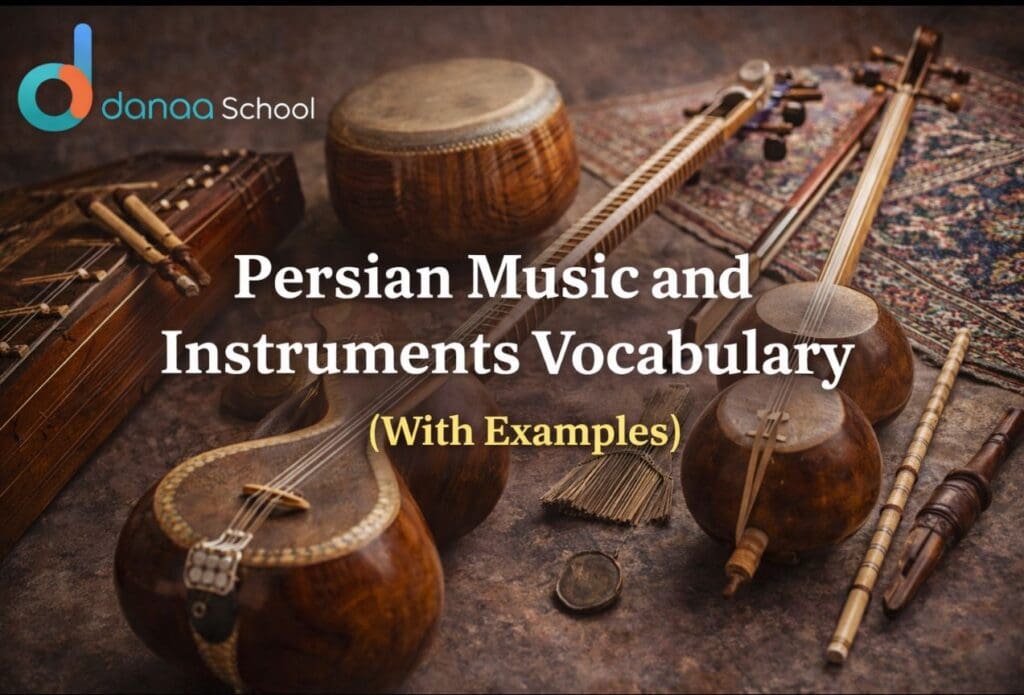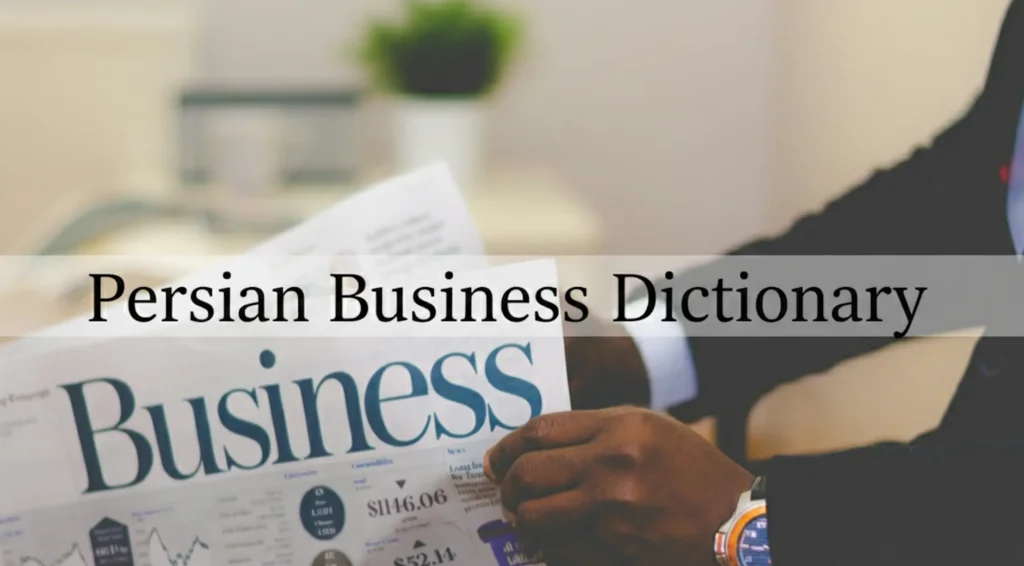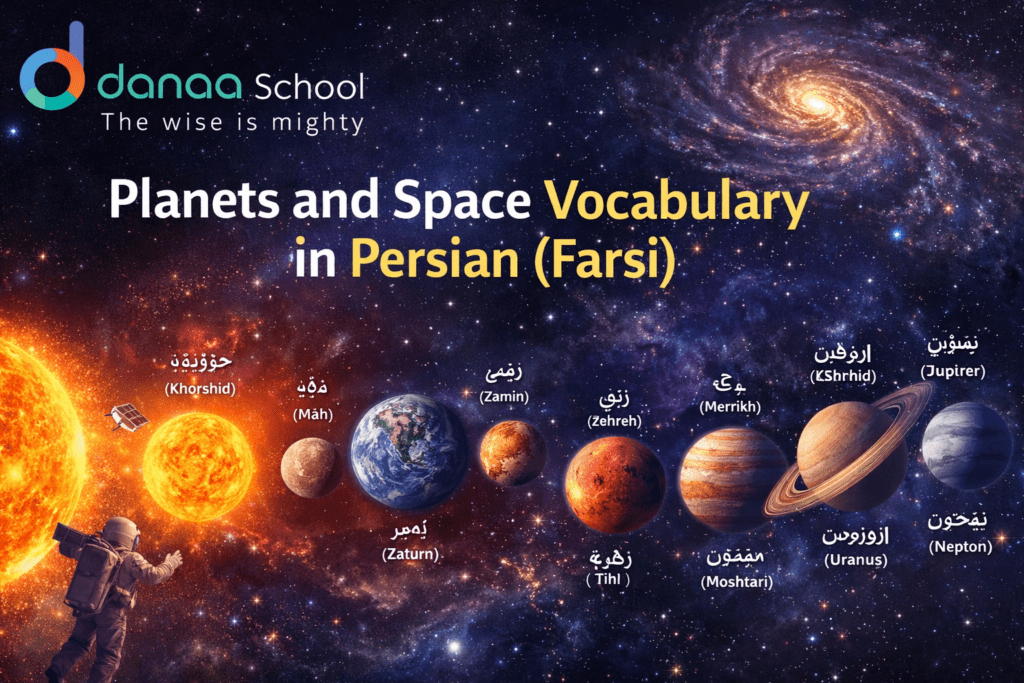The Influence of Persian on English: Common Words and History
The influence of Persian on English can be seen in many everyday words related to trade, culture, food, and history. Over centuries of cultural exchange, several Persian (Farsi) terms entered the English language—often through trade routes, empires, and literary transmission.
In this guide, you will learn how Persian words entered the English language and explore some of the most commonly used Farsi words in English, including their Persian spelling, transliteration, and original meaning.
How did Persian words enter the English language?
The influence of Persian on English developed gradually through long periods of contact between cultures. Persian contributed vocabulary to English through several key historical channels.
- Trade routes: Networks such as the Silk Road carried goods—and language—across Asia and into Europe.
- Empires and administration: Persian served as a court and literary language in large parts of South Asia.
- Literature and scholarship: Persian poetry, science, and philosophy were translated and circulated widely.
Common Persian (Farsi) words used in English
Below are several well-known Persian loanwords in English, shown with their Persian spelling and meaning.
Bazaar — بازار (bāzār)
Meaning: a marketplace. In modern English, “bazaar” can also refer to a market-style fundraising event.
Checkmate — شاه مات (shāh māt)
Meaning: “the king is defeated.” This chess term entered European languages through the historical spread of the game.
Pajamas — پاجامه (pā-jāmeh)
Meaning: “leg garment.” In English, “pajamas” refers to sleepwear.
Jungle — جنگل (jangal)
Meaning: a dense forest or wild woodland, often used in English to describe tropical vegetation.
Kiosk — کوشک (kūshk)
Meaning: originally a pavilion or small palace. In modern English, a “kiosk” refers to a small booth or stand.
The Influence of Persian on English in Modern Culture
The influence of Persian on English is not limited to historical vocabulary. Even today, Persian-derived words continue to appear in global culture, literature, and academic writing. These words often carry cultural meanings that go beyond simple translation.
Terms like bazaar and kiosk are used internationally in business, architecture, and urban life. They reflect how Persian concepts travelled through trade networks and adapted to new cultural contexts.
Understanding the influence of Persian on English also helps learners recognize that English evolved through continuous contact with non-European civilizations, rather than in isolation.
- Many Persian words entered English via intermediary languages
- Several retained their original meanings with slight changes
- Some became global terms used far beyond English-speaking countries
Studying these linguistic connections builds a deeper appreciation of both Persian and English as living, interconnected languages.
Why learning Persian matters
Learning Persian provides access to a rich literary tradition and a clearer understanding of how languages influence one another. Recognizing the influence of Persian on English highlights the historical depth of global communication.
Interested in learning Persian? Explore structured courses at Danaa School.
Frequently Asked Questions
Is Persian an ancient language?
Yes. Persian has ancient roots and continues today as a living language, including Farsi (Iran), Dari (Afghanistan), and Tajik (Tajikistan).
How many English words come from Persian?
There is no fixed number, but English includes many loanwords that trace back to Persian, either directly or through other languages.
Is Persian difficult to learn for English speakers?
Many learners find Persian approachable due to its relatively consistent pronunciation and straightforward grammar.








